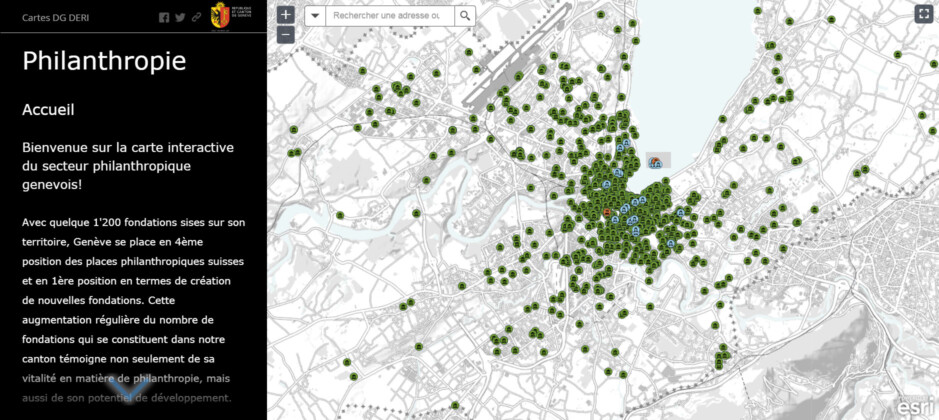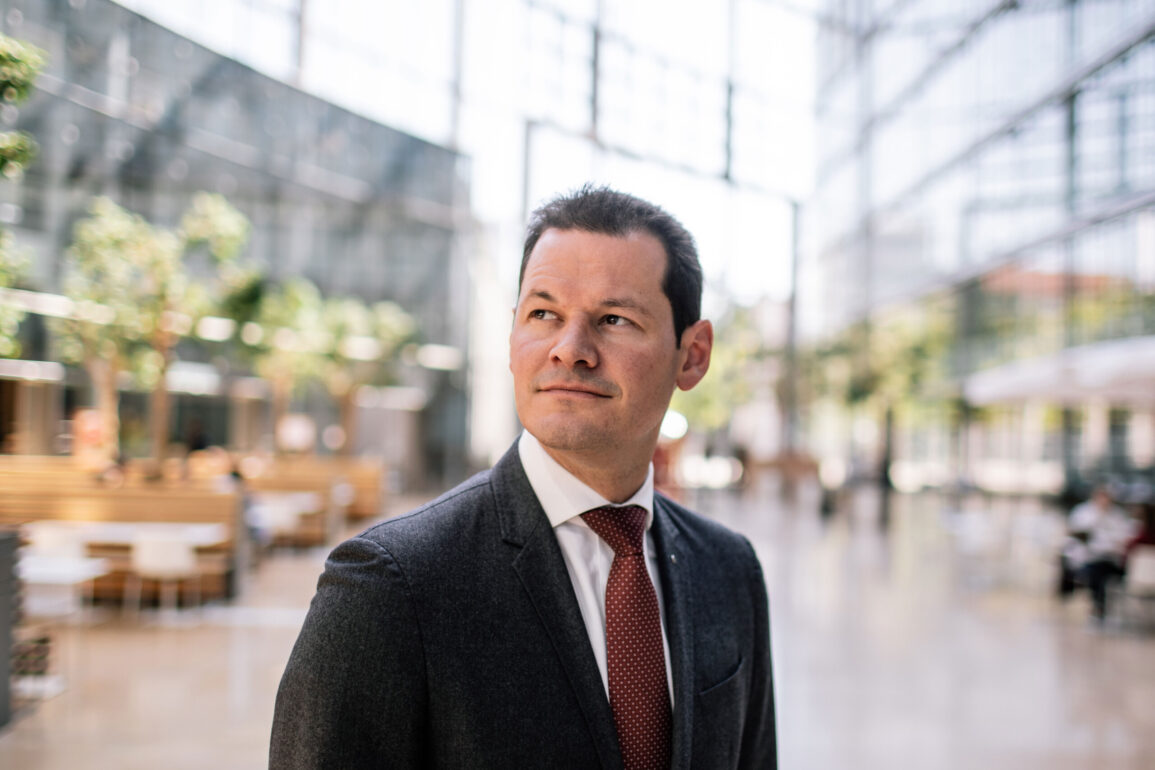Philanthropy is an important part of Geneva’s strategy’, says Pierre Maudet, a senior government official in Geneva. In contrast to other cantons, the sector is still experiencing double-digit growth in Geneva. Geneva has launched an interactive map, supported by StiftungSchweiz, with the aim of responding to this dynamism and making the stakeholders in the sector identifiable at a glance. ‘We identified more than 1,200 charities with philanthropic aims, divided into ones using funds to support their own work or to finance external projects, and ones which do a mixture of both. In addition, there is an entire network of experts and specialists in philanthropy.’ The plan is to expand the map to include stakeholders from associations.
The map is in high demand
In line with the importance of philanthropy in the city, Geneva has run a website for the sector for many years, but an overview of this nature is new. Pierre Maudet is pleased with his initial experience, as the map has met with a positive reception from experts. ‘We’ve received lots of spontaneous responses that reiterate this. The map has had almost 2,100 hits since it went live, an average of 25 sessions a day, so it is clearly meeting a tangible need in this sector.’ The map is embedded within a catalogue of interactive maps. One of them, for example, provides an overview of organisations who offer funding for innovations – and the maps are in high demand. ‘With a little distance, we observed that the specialists in this field made use of the tool almost immediately. It helps us to visualise a particular ecosystem extremely quickly,’ says Maudet.

The potential of digitalisation
The interactive digital map aligns with Geneva’s strategy of offering additional support to the sector. It is not only of importance to philanthropists: it is also of value to Geneva, and it reveals the opportunities associated with digital solutions. As the state official responsible for the promotion of the economy, Pierre Maudet goes on to encourage Geneva’s residents, companies and institutions to engage with digital change. ‘This is a major challenge facing our society. We can’t imagine a future without philanthropy, and the present day is shaped just as strongly by the digital sphere. And the future is already part of the ‘post-digital’ age, with blockchain technologies, artificial intelligence, expanded reality (both virtual and augmented) and quantum computers.


